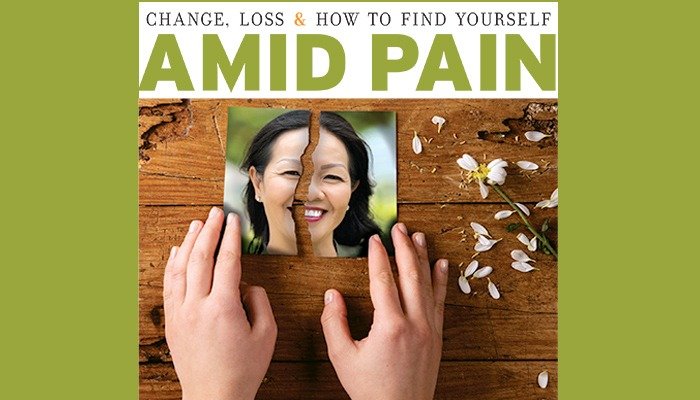Pain and Depression: Your Thoughts Make a Difference

If you have chronic pain, you may be at risk for depression. In one study, 35% of the participants who reported chronic pain were also depressed. Risk of depression was not associated with any particular pain type or site. Pain and depression seem to have a “reciprocal relationship”: they tend to feed upon each other; more pain can increase risk for depression and increases in depression can make pain feel worse. If you think you may be depressed, you may wish to talk with your primary care physician, therapist, or other health care provider.
You can start to manage your depression right now.
Take a careful look at how you talk to yourself. What you are telling yourself everyday about your pain, about who you are now, or what the future may hold has an important impact on your emotional life. Negative beliefs, thoughts, and self-talk play an important role in predisposing people to depression and can play a role in prolonging or worsening depression. Depressing images about pain can also make pain worse. When pain and depression co-occur, negative self-talk has been found to be associated with more depression and greater pain interference. Depression makes chronic pain management even more difficult. What is Negative Self-Talk? The term negative self-talk refers to thoughts, ideas, beliefs, or even images that are overly negative and leave you feeling hopeless. This kind of self-talk takes a bad situation and makes it worse. Below are some examples:
- My life is over.
- People don’t care about me anymore.
- I don’t have anything to offer.
- I’ll never work again.
- No one understands what I’m going through.
- There’s nothing I can do.
- I’m useless.
- I’m all alone.
You may have said some of these things to yourself. They may feel true, especially on a really bad day. However, extreme thoughts, ideas, and beliefs are rarely completely true. Generally, if we challenge an extreme thought, we find exceptions (“I may have fewer friends, but I do have my family and my good friend Kristen”), possibilities (“I think I could work part time”), and hope (“I do have good days and the really bad ones aren’t too frequent”). I am not suggesting that you lie to yourself or become overly positive. Instead, pay attention to how you talk to yourself and watch for those times when you may be overly negative. When you hear your negative self-talk, challenge it. Why should you just accept it? If someone else said the same things to you, wouldn’t you question their right to talk to you like that? When you notice a negative thought, ask yourself:
- Is there a different way to look at this?
- Could it be partly true and partly not true?
- Is this thought helpful or just making me upset? If it isn’t helpful, then I can just let it go.
- Is there a less extreme way to think about this that will help me to be hopeful?
- Would someone who loves me talk to me this way? If not, why am I treating myself this way?
Living with pain is a real challenge. Don’t make it more difficult than it has to be. Pain doesn’t have to cause depression. You can control your thoughts and reduce your risk of depression.
About the Author. Dr. Linda Ruehlman is a social/health psychologist and researcher, co-founder of Goalistics, and director of the Chronic Pain Management Program, an interactive site that helps people with chronic pain to manage their pain and live richer, more effective lives as well as Think Clearly about Depression, a self-management program for depression.
DISCLAIMER: This blog is provided as an educational and informational resource only. It is not intended nor implied to be a substitute for professional psychological or medical advice.
PainPathways Magazine
PainPathways is the first, only and ultimate pain magazine. First published in spring 2008, PainPathways is the culmination of the vision of Richard L. Rauck, MD, to provide a shared resource for people living with and caring for others in pain. This quarterly resource not only provides in-depth information on current treatments, therapies and research studies but also connects people who live with pain, both personally and professionally.
View All By PainPathways





